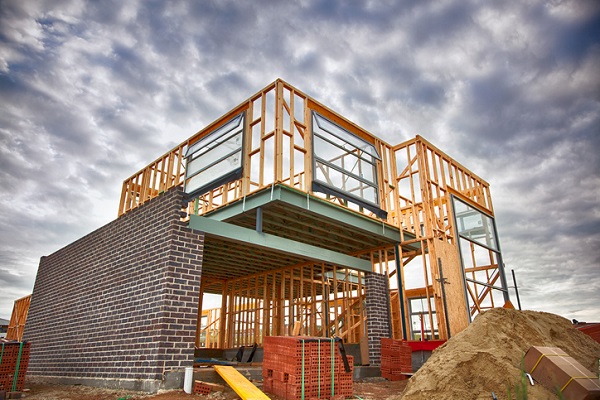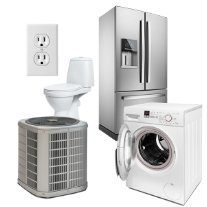A structural warranty is a warranty that your builder provides to cover newly constructed homes. It protects your home’s load-bearing elements against qualified structural defects. Today, we’ll show you what it covers and why builders choose 2-10 Home Buyers Warranty (2-10 HBW) to administer their structural warranties over other providers.
What does a structural warranty cover?
A structural warranty administered by 2-10 HBW covers structural defects to the designated load-bearing elements of the home. Let’s define two important phrases: structural defects and designated load-bearing elements. These phrases have specific meanings that determine coverage.
First, for something to qualify as a structural defect, all of the following statements must apply:
- There must be actual physical damage to one or more of the designated load-bearing elements of the home.
- The actual physical damage must have been caused by the failure of a designated load-bearing element.
- The failure of the load-bearing function of the designated load-bearing element must render the home unsafe, unsanitary, or otherwise unlivable.
As you can see, structural defects hinge on the status of designated load-bearing elements. But what is a designated load-bearing element, exactly? Here are the nine designated load-bearing elements a structural warranty administered by 2-10 HBW covers:
- Roof framing systems
- Load-bearing walls and partitions
- Beams
- Columns
- Footings and foundation systems
- Floor framing systems
- Girders
- Lintels
- Masonry arches
Why does my builder provide a structural warranty?
Every builder has a legal obligation to follow standards related to the workmanship and habitability of the homes they build. So, even if a builder chooses not to provide a written warranty, they are still responsible for assuring that they follow these standards. This is called an implied warranty. However, an implied warranty often falls under court interpretations, which can vary state by state.
If a builder doesn’t provide one at all or chooses to provide a self-written warranty, and a home they build suffers a structural defect, they are on the hook for the costs to remedy the issue. The average structural defect costs between $42,000 and $113,000 to address. That can be problematic if builders don’t have funding to cover those costs.
So, a structural warranty administered by 2-10 HBW can give you peace of mind that if something goes wrong, your builder can provide a solution. It explicitly outlines both the builder’s and your responsibilities in writing.
Instead of just hoping something doesn’t go wrong, a structural warranty administered 2-10 HBW can give you and your builders peace of mind that the industry leader has a solution for structural defects.
Conclusion
A structural warranty from 2-10 HBW can protect you against unforeseen structural issues. As the leader in structural warranty coverage, 2-10 HBW covers 1 in 7 new homes in the United States. All builders have an obligation to guarantee the workmanship and habitability of their homes. A structural warranty from 2-10 HBW provides protection and expectations in writing, which can provide you peace of mind.
2-10 HBW offers the most comprehensive home warranty coverage for homeowners. Let us help you protect your home.
Related content
The Most Popular Home on the Market: New Construction
Differences Between a Home Warranty, Home Insurance, and Structural Warranty
Why You Should Have Both a Home Warranty and Homeowners Insurance








